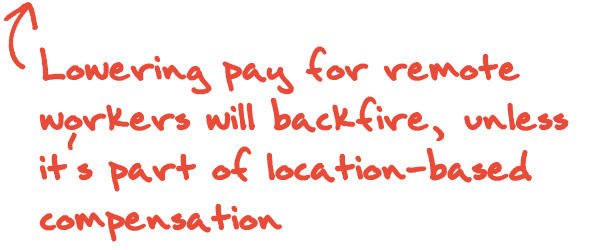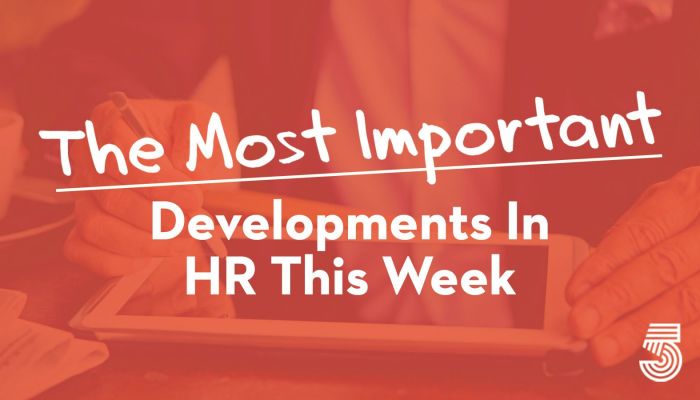The MID, as we call it, is curated by our editorial team from more than 50 news sources. Like a lot of good ideas, this started as something I wanted for myself. If I can’t read everything, I at least want to stay abreast of the most important developments. This week in HR, it was “show me the money” for HR budgets, a U.K. study said boards should be fired if companies don’t walk HR’s talk, there was more employer backlash against Texas, the holiday hiring market got more grim, and a study showed most employers don’t have a pay strategy for remote workers.

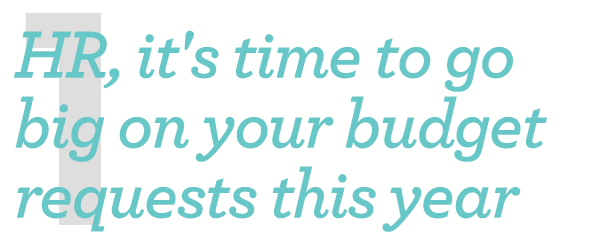
With all the new expectations for HR, leaders should be asking for the investments they need. Board and C-suite executives have never needed and valued the role of HR more. But are they really setting us up to succeed? From what I’m hearing from countless HR professionals across the country and the globe, expectations on their scope, speed to adapt, and ability to fix nubby, long-standing people challenges are rising far faster than their capacity (and resources) to meet them. This is a massive risk to HR functions and the careers of anyone in people operations, as this increased focus on HR could easily turn us into the scapegoat for organizational challenges that we don’t fully own. Think of this as resentment in escrow. So, what do we do about it? Ask for money. But most HR departments are only asking for extremely marginal increases in their budget (if they’re even asking for anything at all). The math literally doesn’t add up when we do this — agreeing to deliver massively more without the support and enablement we need to be successful. HR Executive

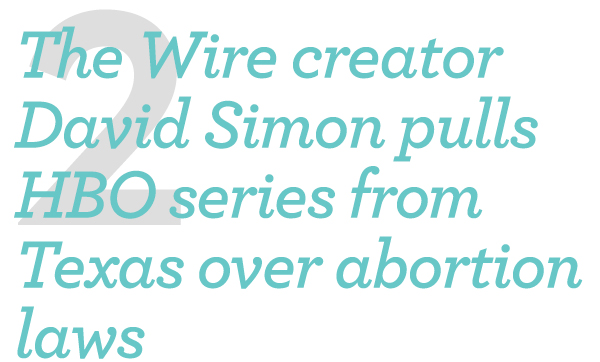
David Simon, the creator of The Wire, has announced to pull out of an upcoming HBO project in Texas owing to the new controversial abortion law. Taking to Twitter, he wrote: “As an employer, this is beyond politics. I’m turning in scripts next month on an HBO non-fiction miniseries based on events in Texas, but I can’t and won’t ask female cast/crew to forgo civil liberties to film there.” His tweet sparked a protest from the Dallas Film & Creative Industries Office saying that state laws should not intermix with the entertainment industry. This prompted Simon to fire back and clear his position as he replied: “You misunderstand completely. My response is NOT rooted in any debate about political efficacy or the utility of any boycott. My singular responsibility is to securing and maintaining the civil liberties of all those we employ during the course of a production.” Geo News

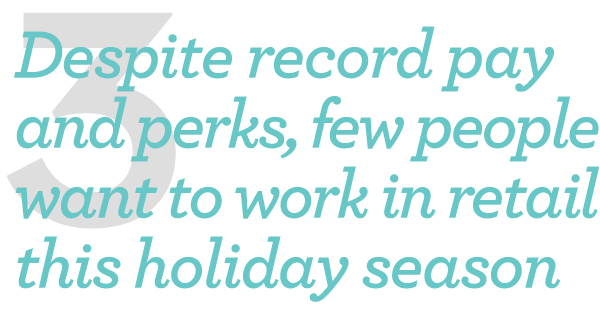
Amid a crushing labor shortage, retail companies are dangling perks such as triple-digit sign-on bonuses, free college tuition, and record-high wages in the scramble to staff up before the busy holiday shopping season. But it’s still not enough to move the needle, raising questions about the ways in which understaffed stores could impact shopping this year. Even after the federal pandemic unemployment benefits expired last week, jobs are still going unfilled. The economy added just 235,000 jobs in August and lost 29,000 retail jobs, according to the latest monthly data from the Bureau of Labor Statistics. There was also a 44% decline in retail applications per opening in August since the start of the year, compared to a 19% decline across other industries, according to data from talent cloud company iCIMS. It now takes 40 days to fill a retail position, a 21% increase from April this year, it reported. NBC News


When companies expand their stated corporate purpose beyond profits for shareholders, individual board members should be held accountable for fulfilling those new goals. If a company falls short of its stated obligations to customers, employees, or the planet, investors should vote the directors out. That’s the recommendation of a new report from The British Academy, the U.K.’s premier organization for researchers in the social sciences and humanities. The report is the result of a four-year-long study into the evolving nature of corporations. Since in business, money talks, companies should be assessed on how much they invest in actually fulfilling these broader commitments to employee welfare, diversity, environmental stewardship, and community, the Academy said. It also said that companies must align incentives within the business so that employees are all working to meet these broader purposes and not just rewarded for meeting revenue, profit, or cost-cutting targets. Fortune

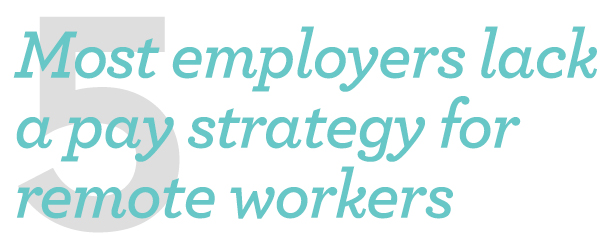
PayScale, a compensation data and software firm, analyzed 538,438 salary profiles collected from July 2019 to July 2021 and surveyed 682 employers from June through August 2021. The firm’s 2021 State of Remote Work Report indicates that: While 43% of workers overall expect remote-work options to increase after the pandemic, 81% of employers do not have a compensation strategy that encompasses remote workers. While most employers are not planning to lower pay for employees who work remotely, that could change as location-based compensation strategies become more popular, especially for large, global organizations and technology companies, such as Google and Facebook, PayScale reported. “There are many appropriate ways to structure compensation strategies to accommodate remote work and increased workplace flexibility,” said Shelly Holt, chief HR officer at PayScale. “What really matters, though, is that compensation programs are competitive, consistent, and fair.” SHRM
